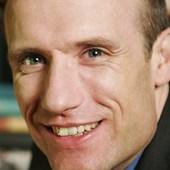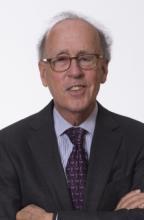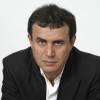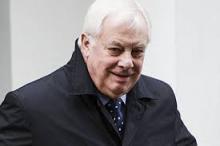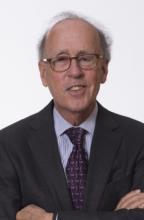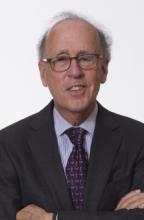A China Optimist's Lament
NEW HAVEN – I have been a congenital China optimist for most of the past 25 years. I first came to that view in the depths of the Asian financial crisis in 1997-98. The so-called East Asian growth miracle was in tatters and China was widely portrayed as the final domino that would fall in what was then viewed as the first crisis of globalization. Having shuttled back and forth to the region during that period as Morgan Stanley’s chief economist, I had quickly come to appreciate the power of China’s market-based economic transition. So, in March 1998, I took a very different view on the pages of the Financial Times with my first published commentary on China, “The Land of the Rising Dragon.”
My argument, in a nutshell, was that China would supplant Japan as the new engine of post-crisis Asia. Japan was floundering in the aftermath of its post-bubble implosion, whereas a reform-oriented China had the wherewithal, determination, and strategy to withstand the currency contagion of a devastating external shock and sustain rapid economic growth. As China delivered, boosted by its accession to the World Trade Organization in late 2001, and Japan sunk into its second lost decade, the Chinese economy took off like a rocket.
It was the beginning of an extraordinary journey for me as Wall Street’s resident China optimist. In the spring of 1998, I spent a day in Seattle with then Chinese Finance Minister Xiang Huaicheng. He had read my piece in the FT and wanted to exchange views on the Chinese and US economies. He implored me to think of China less in terms of legacy state-owned enterprises (SOEs) and more through the lens of a rapidly emerging entrepreneurial subculture driven by township-village enterprises (TVEs).
Xiang was kind enough to organize a subsequent tour of several TVEs in Fujian Province. The most impressive was the Hengtong Group, a rapidly growing producer of high-quality fiber optic and telecom cables. Loaded with state-of-the-art technology from the United States and Germany, and staffed with a surprisingly large number of college graduates, Hengtong was the opposite of China’s long-ossified SOEs.
That experience whetted my appetite. I deepened my research into the seemingly paradoxical dynamism of China’s blended economy, with newly reformed and increasingly marketized SOEs starting to list shares in international capital markets in a balancing act with a rapidly growing private sector. Could China avoid the chronic problems that had long afflicted other blended systems, including Japan?
This same question was posed by former Premier Wen Jiabao. I first met Wen in late 2002, a few months before his elevation to the premiership under President Hu Jintao. His curiosity impressed me more than his skills as a strategist, which had distinguished his predecessor, Zhu Rongji.
But Wen had the courage to spark a debate about one of China’s toughest problems: In a public press conference in March 2007, he warned that while the economy was superficially strong, it risked becoming “unstable, unbalanced, uncoordinated, and unsustainable.” To Wen’s great credit, he posed the paradox of the “Four Uns” just a few months before the eruption of America’s subprime mortgage crisis, which would culminate in the 2008-09 global financial crisis.
At this point, I doubled down as a China optimist. The resilience of the blended system – the legacy of Deng Xiaoping’s “reform and opening up” – held the key to what I believed would be a powerful rebalancing of the Chinese economy. Wen’s Four Uns could be resolved only by a structural shift from exports and investment to consumer-led growth, from manufacturing to services, from surplus saving to saving absorption by investing in a long-deficient social safety net, and by shifting from foreign to indigenous innovation.
China’s flexible, blended, increasingly dynamic private sector could do all that and more. In the years following Wen’s proclamation, China’s five-year plans aligned with this rebalancing agenda. The case for a structural transformation to a more market-based system was increasingly on track. Optimists, like me, felt vindicated.
Then came Xi Jinping. At first, China’s fifth-generation leader seemed to be cut from the same cloth as the reform-oriented Deng. A sweeping set of reforms proposed at the Third Plenum of the 18th Party Congress in late 2013 was especially encouraging. But shortly thereafter, uncomfortable frictions started to creep into the rebalancing strategy.
In 2017, Xi kicked off the 19th Party Congress with a regression to Marxist ideology that immediately became known as “Xi Jinping Thought.” Consumer-led rebalancing was de-emphasized. An anti-corruption campaign became less about purging wrongdoers from the party and more about eliminating Xi’s political rivals and consolidating his power. And Xi’s geostrategic muscularity broke from Deng’s low-key (“hide and bide”) posture and led to a major conflict with the United States.
But 2022 was the ultimate wake-up call for China optimists. Xi’s great-power gambit aligned China in an “unlimited partnership” with Russia on the brink of the Kremlin’s unprovoked invasion of Ukraine. Xi’s stubborn insistence on an untenable “zero-COVID” policy tapped an undercurrent of dissent not seen in a generation. And the 20th Party Congress in October was less about Xi’s claim to an unprecedented third term as general secretary and more about his fixation on security in what he dubbed to be a threatening world of “perilous, stormy seas.”
With a shrinking working-age population, China, until recently the world’s greatest growth story, needs an acceleration in productivity growth to reclaim that mantle. Yet Xi’s increased emphasis on security, power, and control undermines productivity at a time when China needs it the most. The growth miracle can only suffer as a result.
China had come close to the promised land. Its modern economy was on an extraordinary trajectory. The rebalancing agenda promised more to come. But Xi broke that promise. The political economy of autocracy has thrown cold water on those of us who used to be diehard China optimists.
Stephen S. Roach, a former chairman of Morgan Stanley Asia, is a faculty member at Yale University and the author, most recently, of Accidental Conflict: America, China, and the Clash of False Narratives (Yale University Press, 2022).
Copyright: Project Syndicate, 2022.
www.project-syndicate.org
This article is brought to you by Project Syndicate that is a not for profit organization.
Project Syndicate brings original, engaging, and thought-provoking commentaries by esteemed leaders and thinkers from around the world to readers everywhere. By offering incisive perspectives on our changing world from those who are shaping its economics, politics, science, and culture, Project Syndicate has created an unrivalled venue for informed public debate. Please see: www.project-syndicate.org.
Should you want to support Project Syndicate you can do it by using the PayPal icon below. Your donation is paid to Project Syndicate in full after PayPal has deducted its transaction fee. Facts & Arts neither receives information about your donation nor a commission.




